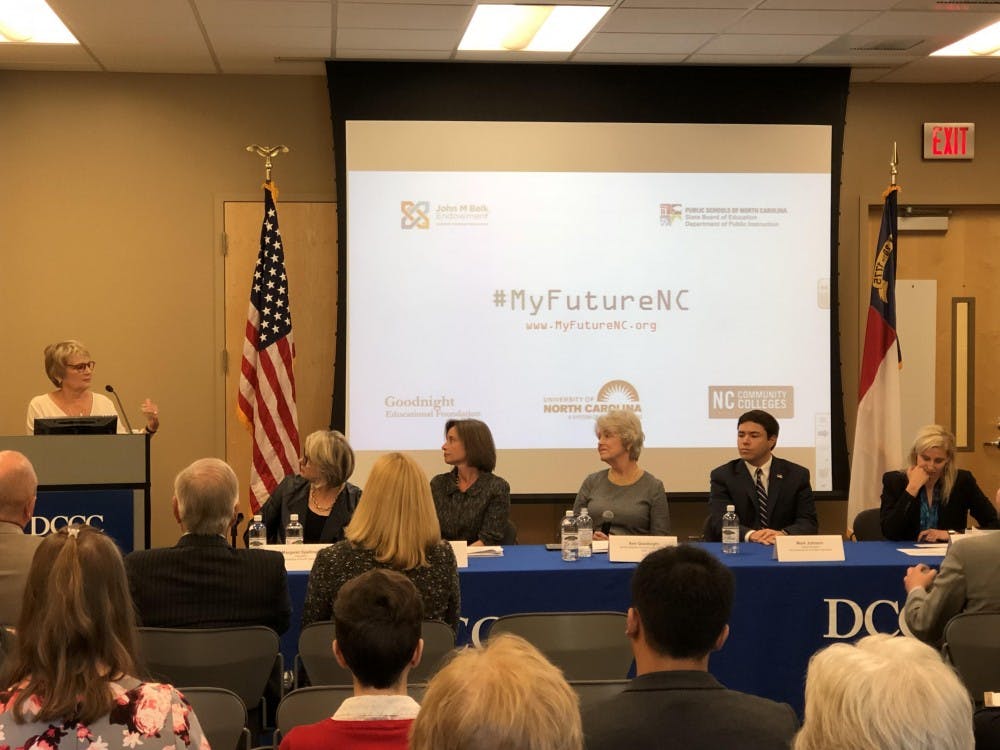Leaders in education, business, philanthropy and government across North Carolina have come together to form My Future NC — a statewide commission focused on setting comprehensive attainment goals for the state’s education system.
The commission — comprised of over 30 members from diverse professional backgrounds — is co-chaired by Dale Jenkins, CEO of Medical Mutual Holdings; Andrea Smith, CAO of Bank of America; and Margaret Spellings, president of the UNC system.
The commission plans to produce two reports by 2018. One will set attainment goals and policy recommendations to address prominent issues in education while the other will lay out policy recommendations regarding specific issues and proposed solutions.
The committee will meet several times throughout the next 12 to 18 months and will host eight town-hall-style meetings to hear from different sectors of education and the economy. Each meeting will be streamed live on UNC-TV.
In a statement released Oct. 17, Spellings said rural communities had been left out of educational and economic reforms and successes and pointed out that North Carolina is one of a few states without a comprehensive, statewide strategy for K-12 and post-secondary education.
“The goal of this effort is simple but by no means easy: to develop a multi-year education plan that recommends a robust attainment goal for the state and a broad-based agenda for a stronger and more competitive North Carolina,” Spellings' statement said. “We can do better and we should do better—the future of our great state depends on it.”
Kristy Teskey, executive director of the commission, said a major goal of the commission should be educational equality across the state.
“If you’re educated in North Carolina, it should be a stamp of approval that you have a quality education,” she said.
Teskey said another purpose of the commission is to unite conversations about North Carolina’s economic development, workforce development and education system.




